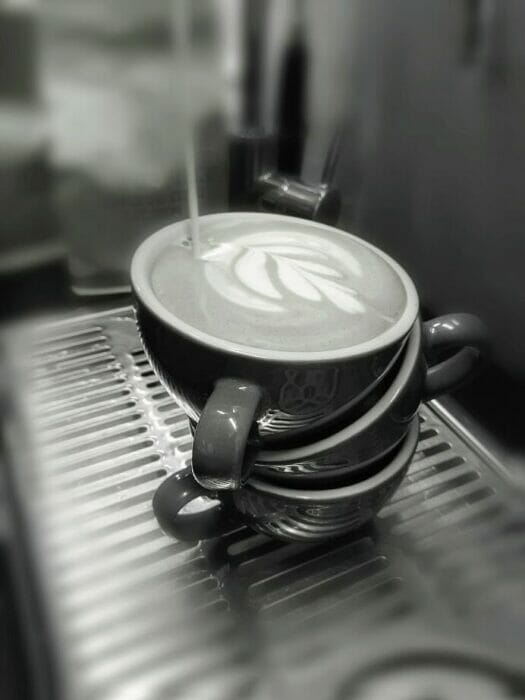I'm in danger of making this post seem a bit biased—and that's why I'm going to be very careful writing it. But I want to write it because this is the topic that truly excites me. It feels "alive," controversial, and that alone makes it worthwhile to try.
Before I begin writing, I have to confess that I have no experience as a competitor. Partly due to my personality; partly, and mostly, because I've been moving from one country to another in recent years. However, I do have experience on the other side of the scene—as a trainer for competitors and as a sensory judge, which makes me familiar with the protocol.
So, as you've probably already guessed, I'd like to delve into the world of barista competitions today, and think out loud, here with you, about what drives people to compete, what motivates them, what it gives back to the industry, and also mention a few facts that I find interesting.
People who compete have one big thing in common. And it's not about them being objectively the best in the industry. They all have the desire to win, to try, to find out who's the best—to compete, in other words. What I mean is, not all qualified professionals compete. The sample isn't representative, if you understand what I'm talking about.
Basically, we find out who's the best among those who consider themselves the best in some way, and are willing to say it out loud. Those guys who aren't quite sure, those guys who don't have enough of a "competitor vibe," who don't want to put themselves on the map and shout about themselves out loud—they might be better baristas, more creative, more professional than some competitors, but they're not competing, so...
And here comes the most curious thing for me about the "barista department." I don't know about you, but most of the baristas I know, those I've worked with, those I've trained, those I've spoken to—are women. Most of the baristas you'll see in coffee shops are women.
And now let's see one thing, the list of competitors for the 2019 World Barista Championship7. There are currently 50 registered competitors, and only 7 of them are women. 7 of 50. 14%. 2016: 61 competitors, 12 of them women. 19,67%. Women simply don't compete. Why? Is there something at the core of competition that makes it more attractive to men, and not women?
There's a study that says women are more focused on other values, like connection and communication, and competition just doesn't fit with that because it's disconnecting. I know many more male baristas who dream of competing, putting themselves on the scene, when sometimes objectively they're not as skilled as some of the female baristas. But they just don't hesitate, or the idea of competing excites them much more. I don't know. But I wish we could have more women entering the competition.
Competing, and especially winning the competition, is the best way to become known in the coffee scene – and eventually attract sponsors and offers. Goals of fame and money are the primary motivators for entering the competition. Which is fair enough; after all, we all have to pay the bills. What's disturbing to me is that when it becomes the sole motivator – aspirations are high, humility is zero, and it leads to cases like opening a barista school, talking about espresso, train people, charge money, and never, ever measure TDS in your life. That's a very real case, which is terrifying, but that's a different story.
I was thinking about that, and I guess that fame motivator is more active now in countries where the barista scene is developing. It's like the first step, the desire to be the best among the others, which is still close to the desire to be the big fish in the small pond. The bar isn't that high yet, and it's easier to get in and take some high places with a fairly simple presentation.
As the barista scene begins to develop, we see more and more people entering competitions with the goal of personal improvement. These include roasters, baristas, coffee shop owners, and managers. They use this opportunity to showcase themselves, yes, but at the same time, their place at the end isn't as important as the judges' feedback, and more importantly, everything they learned during the brewing process, which is a journey in itself to begin with. Competition opens the door to growth.
At the next level, competing is becoming a way to get the message across, the idea behind it, bringing something new to the industry, showing the results of experiments at each stage of coffee production, which could be coffee processing, variety (Sudan Rume and Sasa Sestic), new equipment (e.g. Canadian Ben Put using vacuum sealer), cafe operations (like using pre-ground coffee, like Charles Babinski from the US) or some crazy techniques (using frozen beans, like Kyle Ramage representing the US did this year).
This is the most exciting level, as it brings so much innovation to the industry and allows these ideas to reach more people, provoke more thought, give birth to new ideas, etc. For me, this is the most fruitful, the most interesting level and reason to compete—to add something new, to bring new ideas to the discussion. There are not many countries with this level of baristas; they are industry pioneers, such as the United States, Australia, Germany, Taiwan, and Japan, where there are a large number of competitors and regional championships.
The competition It's a challenge for the barista, a challenge to their skills, their creativity, their speed, their personality, despite everything. It's a challenge to put something bigger into their presentation than just a naked desire to win. Be inspired, driven, and walk away, no matter what position you took, with more ideas and knowledge than you had before you entered.
